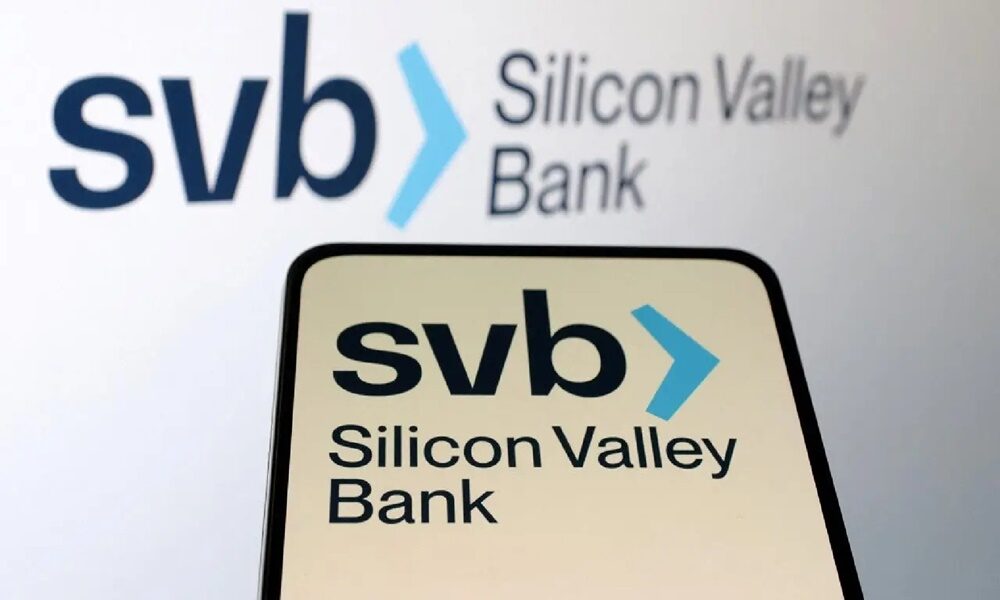
March has been a tumultuous month for the US economic sector. And of course it is not for less, when the news of the Silicon Valley Bank bankruptcy has put the country and the tech industry in a complicated position and that augurs bad omens.
Silicon Valley Bank is one of the banks America’s most powerfulTherefore, the news of its financial crisis has protected the sector, the situation was so difficult that its regulators decided close the bank and designate an external body that will handle everything related to its administration and return of funds. The shock wave has not stayed in the country’s economic cabinet but has come to be felt among technology startups and global markets.
Silicon Valley Bank (SVB)
What happened in Silicon Valley Bank has imperiously shaken the economic sector of the United States and, when we talk about the SVB, we mean a bank of one financial strength within the US economic sector. More specifically, the bank that came to have 29 offices in the United States and as many in India, the United Kingdom, Israel, Canada, China, Germany, Hong Kong, Ireland, Denmark and Sweden, was a necessary link for the future of the startups.
In this sense, Silicon Valley Bank was located within of the largest banks in the United States and the largest in Silicon Valley. His activity was aimed at grant loans to companies in the technology sector and finance startups that were trying to make their way, so the bankruptcy to which it has been doomed, has placed the industry in a dangerous situation.
The powerful Silicon Valley bank had total assets of approximately $209 billion at the end of 2022 and $175.4 billion in deposits, thus placing it in one of the largest lenders from United States.
The biggest bank failure since 2008
March 10 has been marked in the financial market as the day on which memories of the 2008 economic crisis were revived. Last Friday the bank entered a situation of no return and has meant the biggest bank failure in recent years. The trigger came at a meeting between 40 financial chiefs from various technology groups, who, meeting during a summit organized by Silicon Valley Bank itself, considered the decision of whether or not to continue having their capital in the bank.
The bank’s deposits increased to 124,000 million dollars in March 2021 benefiting from the impact of the pandemic on the technology sector, capital that was invested in long-term bonds to obtain a higher return. With the subsequent rise in inflation, these bonds began to fall, something that triggered a notable loss of interest and the consequent drop in startup deposits.
Faced with such a scenario, the collapse reached the entity last March 9 realizing they were missing $2.25 billion in order to balance your balance. Given this, nervousness flooded those who had their capital in the Silicon Valley bank and the shares fell more than 62%.
The call was unexpected and multiple companies in the technology industry began to withdraw their money, adding a total close to 42,000 million dollarsfurther increasing fear within the sector.
A call for calm
Given the situation of financial crisis, the federal regulators of financial services in the United States have taken action on the matter. So much so that the Treasury Department led by Janet Yellen, the Federal Reserve and the Federal Deposit Insurance Corporation (FDIS) released a statement yesterday Sunday in which they ensured that companies would have no problem accessing all their money today Monday.
In their letter, they stated that “no loss associated with the Silicon Valley Bank resolution will be passed on to taxpayers.” So much so that they have developed a emergency plan backed by 25,000 million dollars, to solve the situation and avoid greater evils.
The intervention of the British bank HSBC
HSBC, the largest European bank, announced Monday the rescue of Silicon Valley Bank, buying the US bank for the symbolic amount of a pound (€1.13) in coordination with the British government. The CEO of HSBC, Noel Quinn, has clarified that “this acquisition has a excellent strategic sense for our business in the UK. It strengthens our commercial banking franchise and enhances our ability to serve fast-growing and innovative companies, including in the technology and life sciences sectors, both in the UK and internationally.”



